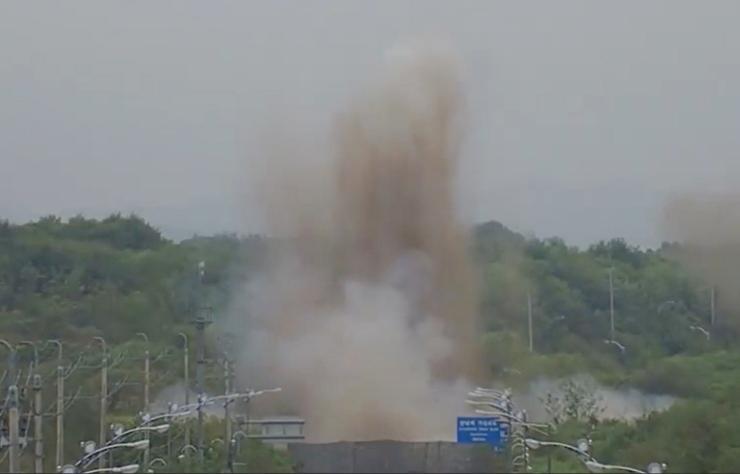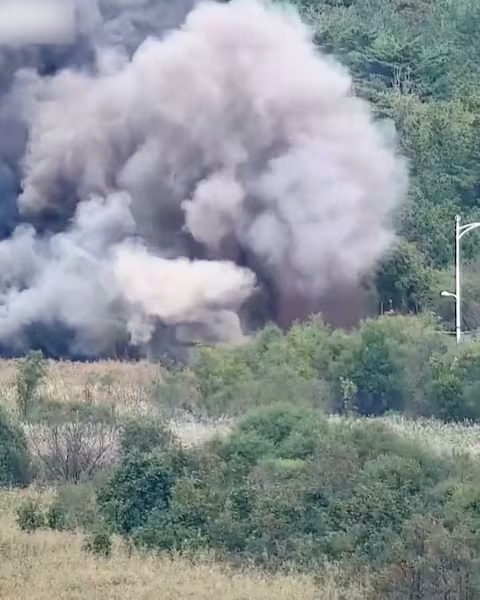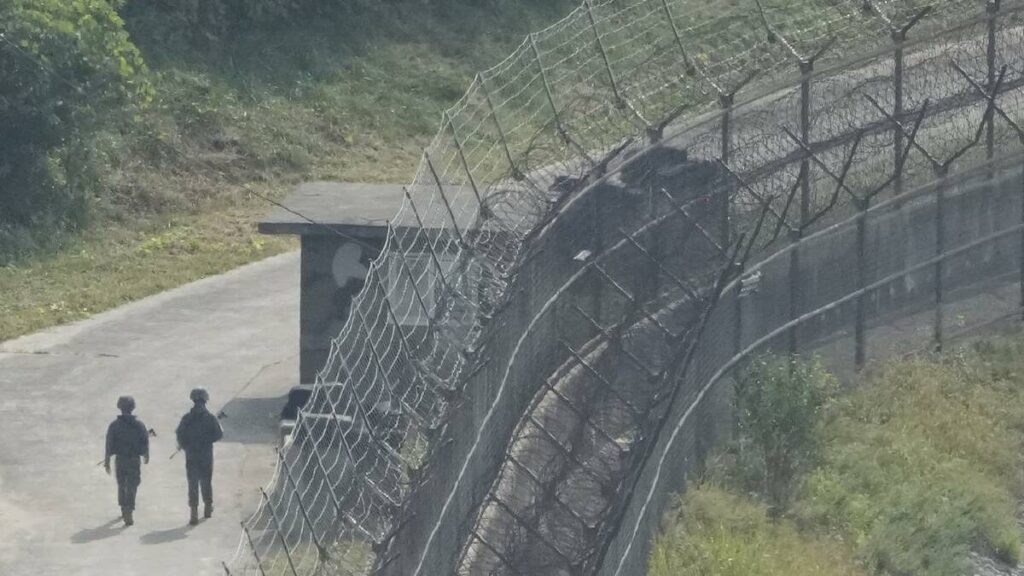North Korea dramatically escalated tensions on the Korean peninsula Tuesday by demolishing sections of inter-Korean roads and railway lines along its side of the heavily fortified border, prompting South Korea’s military to fire warning shots in response.

The provocative action follows Pyongyang’s announcement last week that it would sever these transport links entirely and further fortify its border areas, signaling a dramatic shift away from its longstanding goal of Korean unification towards a “two-state” system.
South Korea’s Joint Chiefs of Staff (JCS) reported that around midday, explosions were observed destroying northern portions of road and rail connections to the South. Video footage released by South Korean military authorities showed a large explosion and plume of smoke rising above a section of road where North Korea had erected a black barrier. The footage also captured dump trucks and earth-moving equipment approaching the area, guided by North Korean military officials.
In immediate response to the blasts, South Korean forces fired warning shots south of the military demarcation line, though no damage was reported on the southern side of the border.

Koo Byoung-sam, spokesperson for South Korea’s Unification Ministry, which handles inter-Korean affairs, strongly condemned the incident. “It is deplorable that North Korea is repeatedly conducting such regressive behavior,” Koo stated during a press briefing. He emphasized that the demolitions represent a clear violation of previous inter-Korean agreements.
The destruction of these transport links carries significant symbolic weight. They were established as part of reconciliation efforts that culminated in a 2018 summit between the two Koreas. South Korea had invested over $132 million in rebuilding these connections through low-interest loans to North Korea, according to Unification Ministry data.
This latest provocation comes amid rising tensions following North Korea’s accusations last week that Seoul had sent drones over Pyongyang to scatter anti-North Korean leaflets. Kim Yo Jong, the powerful sister of North Korean leader Kim Jong Un, warned on Tuesday that South Korea would “pay a dear price” for this alleged action. The South Korean government has declined to confirm or deny these allegations.
The two Koreas have also clashed over balloons carrying trash that have been floated from North Korea since May, which Pyongyang claims are in response to similar balloon launches by anti-regime activists in the South.

These developments mark a significant deterioration in inter-Korean relations, with North Korea increasingly treating South Korea as a hostile, separate state. Earlier this year, Kim Jong Un declared South Korea a “primary foe” and stated that unification was no longer feasible.
The international community has expressed concern over the escalating situation. Chinese foreign ministry spokesperson Mao Ning called for restraint, stating Beijing’s desire “to avoid further escalation of the conflict.”
As tensions mount, South Korea’s Gyeonggi Province, which borders North Korea, announced plans to deploy a special police force to crack down on the launching of anti-North Korea leaflets from border areas. This move comes despite South Korea’s constitutional court overturning a ban on such launches last year, highlighting the delicate balance between freedom of speech and security concerns in the region.
The destruction of these transport links, once symbols of inter-Korean cooperation, underscores the fragile nature of peace on the Korean peninsula and raises concerns about the potential for further military confrontations in the region.



